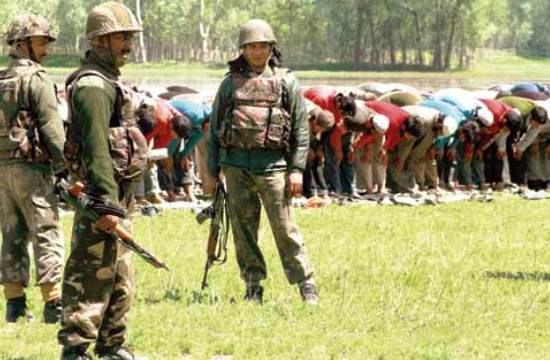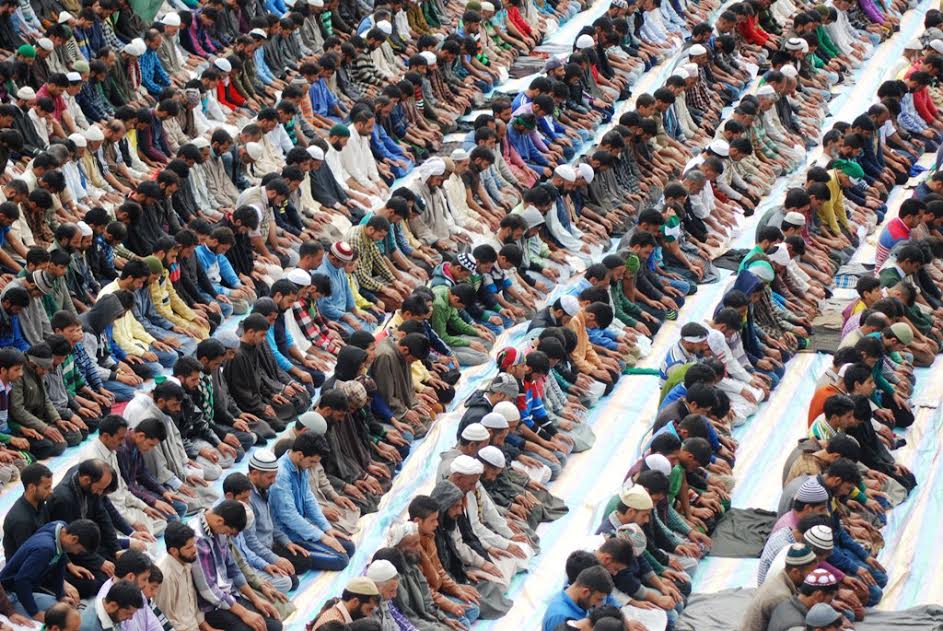The ground zero debates dominating the spaces of faith and belief indicate divisions and sub-divisions of a society that was considered homogeneous, reports Muhammad Younis

Early this year, in a Pulwama village, the people had thronged a local mosque for the Friday congregation. Before the Imam would deliver his sermon, almost half of the mosque was already full. As he went on, more people turned up to occupy the rest.
The Imam had a gracious start. It was barely quarter of an hour later that his voice began to rise. Clenching his fists in fury, he shouted many times, “do they want to pinpoint flaws. Let me count them a sea from their books.” Because there were loudspeakers all over, the whole mosque reverberated to annoyance. And until the end, the voice of the Imam didn’t restore to its prior condition.
The Imam, affiliated with Jamiat Ahl-Hadith, was referring to his Hanafi counterpart. In the course of the time of his heated reaction to what his counterpart had earlier said, the Imam could not spare time to even explain fully the verse from the Quran with which he had started his sermon.
When the prayers concluded, a person from the audience waited until the mosque was empty, save Imam, and a couple of caretakers of the mosque. “You shouldn’t talk like this in the mosque. You are meant to bridge the gaps and not the other way round,” he tried to counsel the Imam. “If a learned person like you speaks in such a manner, what can we expect from others?”
Caught on the wrong foot, the Imam blamed the other sect for his behaviour. Although he eventually got convinced for his “negative” contribution, the “harm was already done.”

Research has fairly established that Islam made inroads in Kashmir in 12th and 13th century. At various points in time before, Buddhism, Hinduism and Animistic type religions prevailed here. Kashmir’s formal transition to Islam started with the conversion of Buddhist prince Rinchana in 1320 and completed during early Sultanate period. But still, the Kashmiri “maintained” the impressions of past religions while assimilating new religious beliefs of Islam.
“The tradition of syncretism always got carried into the culture of Kashmiri people,” said Ashraf Wani, former professor of history at the University of Kashmir, who mostly worked on the topic Islam in Kashmir. “And then, as Islam didn’t land here directly from the place of its birth, it retained many other things from the cultures it travelled through.”
The 2011 census counted 1.25 crore people across J&K, of whom about 68.3 percent are Muslims. In Kashmir 97 percent population is Muslims. Then there are sects. Prominent are Shia, Sunni. Then there are various sections within the sects: Deobandi, Barealvi, Zaidi, Jafferi, Hanafi, Maliki and Hanbali.
Like that Friday congregation, almost every day, there are videos going viral on social media sites wherein the Imams of different sects are seen casting aspersions on one another, and at certain occasions, the verbal duel ends into exchanging fists.
“Discussions and debates have always been part of the history of Islamic mythology,” said Dr Nazar Ul Islam, an assistant professor of Islamic Studies at Boys College Islamabad. His doctoral research has been about Religion in the perspective of clash and dialogue theories, and Response to the theory of the clash of civilisations. “Difference of interpretations is good, as it signifies the elasticity of Islam.”
But, Nazar says, the problem crops up when people of certain sect try a fascist imposition of their belief on others. “In contemporary Kashmir society, the whole issue has taken a dangerous hue. While Islam asks for unity among its adherents, it is other way round. People are thrown out of mosques for doing certain things like Rafuladeen, and these people, in turn, establish new mosques. At certain places, you even get to see, the mosques being bifurcated on trivial issues.”
Religious sectarianism is historical, and was always “politically fed”. The rivalries between two top Islamic countries like Iran and Saudi Arabia, Nazar says is always a matter of debate among the followers of different sects in Kashmir. “Whatever the doing of these countries are, it has geopolitical motivations, and religion is used a mere tool in it.”
Professor Wani is of the belief that the issue fuelling rivalry among Muslims is an international phenomenon, and the anti-Muslims agencies never want the particular religion to restore its state of the medieval era when it was ruling a major part of the world. “To break that stature of Islam, narratives of nationalism, ethnicity, geography, culture, and sect were and are being continuously propagated, which cause a division among Muslims,” Wani said.
And in conflict places like Kashmir, “the state has a major part in meddling with religion as well. It uses religion for its own benefit. By patronizing certain religious figures, it creates a counter-narrative against those who dissent.”
Pertinent to say, Kashmir might be the only place wherein 1979, Holy Quran was burnt by Muslims because they got swayed by a narrative that these books were not the true Quran.

According to Nazar’s recent research paper Religious Understanding Among the Youth of Kashmir Province- An overview, published by Localities Journal of Korea, there were attempts in the previous centuries also to carve out the religious impressions of the past faiths on the form of Islam Muslims in Kashmir were practising.
“When Mir Shamsuddin Iraqi made efforts of reformation, it invited trouble and he had to leave Kashmir,” Nazar writes in the paper. “Later, when Hussain Bakhtu tried, he was exiled by Maharaja.”
Nazar also brings forth the “fear dimension” of it. He says a fear of being overcome is found among the adherents of different sects here. “If they are sincere followers of the religion, they wouldn’t give priority to our own benefits.”
Zubair Ahmad, who has done bachelors in Islamic Jurisprudence from the Medina University of Saudi Arabia and Masters in Arabic from Kashmir University, says that there have always been differences of opinions about certain issues quite early in Islamic history. “The practice of searching answers for each of our differences from the Quran and the authentic Hadith is the only way forward to tackle the differences,” he said.
And, according to him, the important thing is to understand the Islamic scriptures as the disciples of the prophet have understood, and not according to our own whims, which is the main reason of conflict. “How the disciples of the Prophet understood Islam is recorded and it is the guiding principle for all of us.”
While supporting the idea of discussion Nazar says, continuous civilised interactions between people of different sects of the religion should encourage us to find a “meeting point”, an agreement to respect and tolerate each other, but Prof Wani regrets that the “spirit of Islam – the unity” is missing in these debates. “These discussions have just become a tool to subdue others,” he said.
In Kashmiri society where almost everyone is of the belief that political parties have shattered the fabric of the society by pitting one against the other, Nazar believes that religion remains a potent force to do the opposite.
Religion has a quality of “mass mobilisation” at par with politics. “If the top religious figures of the valley wish they can make religion a unifying force for the sake of common good, peace and progress instead of turning it into a dividing force causing hate and destruction.”















